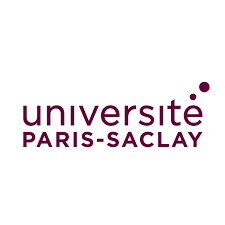-
Chemistry - Materials
-
Complex systems and software engineering
-
Energy, Ecology, Environment
The Institut d'Astrophysique Spatiale (IAS)
Research unit
The Institut d'Astrophysique Spatiale (IAS) focuses its activities on the study of the Sun, Solar System's planets and exoplanets, extraterrestrial matter and interstellar matter, galaxies and cosmology as well as black matter using massive bolometers. The laboratory has a strong technical component in the field of space instrumentation and conducts work in experimental astrochemistry on extraterrestrial and interstellar solid matter and its evolution. It is a major interlocutor of national space agencies (CNES), or international (ESA, NASA) and works with many industrial partners.
Innovation themes
Bâtiment121, Université Paris-Saclay
91405 ORSAY
Expertises
- energy processes, reflectance and link with extraterrestrial matter
- influence of cosmic rays on ice structure
- silicate-gas surface interaction
- production continuum of analogues to the carbonaceous material of MIS
- widening of the range of films and residues produced and their complete characterization
- chirality
- clathrates
- spectroscopy of analogues towards UV-VUV
Interstellar matter and cosmology:
- nature and evolution of interstellar grains
- matter-radiation interaction in star forming regions
- gas physics, formation of structures and evolution of galaxies
- polarization and magnetic field
- history of star formation through cosmic epochs
- cosmology of large cosmic structures
- modeling of reionization
- structuring of matter on large scales
- measurement of cosmological parameters
- realization of superconducting detectors of bolometric type or KIDs (Kinetic Inductance Detector)
Solar and stellar physics:
- dynamics and internal structure of the Sun and stars
- diagnosis and heating of the outer layers
Solar system and planetary systems:
- study of the initial conditions of the Solar System: study of primitive matter
- study of evolution processes: observation of differentiated bodies (terrestrial and giant planets, satellites) and other planetary systems
- study of the other planetary systems by a theoretical and observational approach of the missions
Applications sectors
- Aeronautics / Aerospace
- Electronic / photonics
- Chemistry / Plastics (Glue, Plastic, Rubber...)
Total number of employees
Number of researchers : 43
Number of doctoral students : 17
Equipment(s) open to collaboration
- IR Fourier transform spectrometers (Bruker Vertex 80v, Vector22, Tensor 37): from NIR to MIR in transmittance and reflectance
- IR Fourier transform spectrometers (Vertex 70), MIR by transmission
- low resolution fiber spectrometer: from UV to Visible in transmittance and reflectance
- spectrofluorimeter (Perkin Elmer)
- cryostats coupled to ice matrix deposition chambers
- High-Performance Liquid Chromatograph (HPLC, Thermo-Scientific)
- spectrofluorimeter (Perkin Elmer)
Keywords
- ionic irradiation
- spatial alteration
- micrometeorites
- interstellar chemistry
- planet formation
- heteroatoms
- protosolar nebula
- polarized dust
- interstellar cloud and dust
- proto-cluster galaxies
- helioseismology
- asteroseismology
- coronal heating
- solar wind acceleration
- protuberances
- cometary grains
- meteorites
- primitive bodies
- interplanetary medium
Projects examples
- Europe: Mars Express/OMEGA, JUICE, Euclid, Herschel, Solar Orbiter, PLATO, MISTIC
- International: ExoMars, ROSETTA Bepicolombo, Hayabusa Micromega, JWST / Miri, Planck / HFI, SDO, SOHO, Kepler, IRIS, STEREO
Industrial and scientific relations
Scientific collaborations
- France: CNES
- Europe: ESA
- International: NASA, JAXA
Private collaborations
- collaboration with several major companies
Establishments of affiliation
